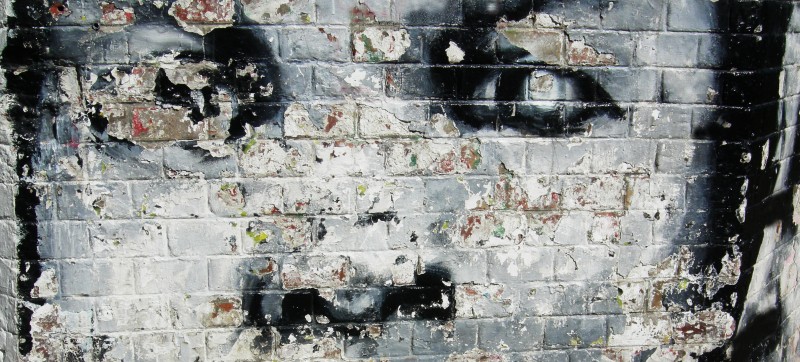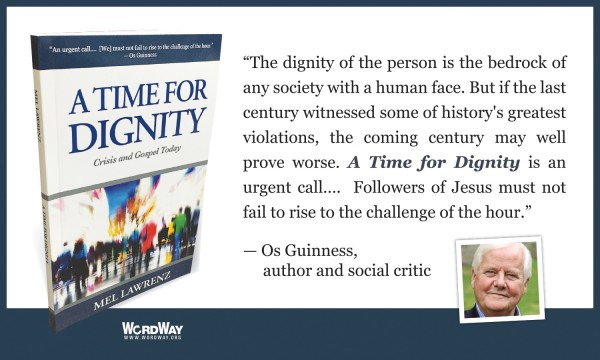Blood on the ground produces panic and confusion and rage, but is also an opportunity for moral clarity. We are watching it all right now. The blood at a traffic stop, the blood of assassinated police officers, the blood of men, women, and children run over by a terrorist driving a truck.
Moral clarity begins with the question of what preceded the blood. The bang of the pistol or the crack of the assault rife marks the moment of failure. But it does not need to go that far. We are awed by what Dallas police chief David Brown has accomplished in recent years in bringing assaults on officers and shootings by police dramatically downward. When Brown explains his methods, it is obvious they include moral and spiritual diagnoses and remedies. This is the kind of wisdom we need today. Through community policing Brown has proactively developed a relational link between residents and officers.
Deep down, what we are struggling with as a nation is a crisis of dignity. Violence is a lapse of dignity, and sometimes a cynical attempt to steal it away.
Most people will say they believe in dignity, but are hard-pressed to define what it means. Dignity means worth. To treat someone with dignity is based on the conviction that they have worth. For some people, like Chief Brown, that conviction is so deeply ingrained that they don’t even think about it. They go into tension-filled situations with a motive to de-escalate. But it is not naive—when a sniper in a parking garage needs to be stopped, he will be.
Other people have no such conviction. They enter into human interactions with a motive to dominate. They look to control or use others, and in so doing violate their dignity. This is the story of much of human history. In the Roman empire you had dignity if you had social status. If you belonged to the slave class you simply had no dignitas, no worth.
But across the centuries, an alternative view of dignity was proclaimed, that life is a creation of God, and thus has true worth, or dignity. In this view, human dignity is granted by God, and so it is inherent. So the Declaration of Independence asserts that all are “endowed by their Creator with certain unalienable Rights.”
At a personal level, we should not be surprised that violations of dignity through injustice or prejudice result in deep wounding and bitter resentment. If we just stop and think about a time when our worth was violated by someone else, and remember the hurt, the anger, and even the shock of it, we would better understand when whole classes of people are tied up in bitterness and suspicion.
But understanding is hard work. Empathy is not the natural state of the human heart. We think we’ve put ourselves in the other person’s shoes when we awkwardly shuffle along for brief spells. But on our best days, when we do stop and listen, when we take the time to reflect and understand, there is some hope for us.
Our crisis of dignity will be ongoing. It is now hard-wired into human nature. Habitual criminal offenders routinely violate the dignity of others, at the same time violating their own dignity. Terrorists will continue to desecrate human dignity because killing is not enough for them, they must deface their victims. Racism is a mindset that is only overcome by a revolution in the heart. We cling to all of our prejudices (racial, class, religious, etc.) because they make life easier. They are the lazy ways we decide who we’re for or against. Political leaders at the highest level behave with extreme indignity when they deal in deception and wallow in avarice. What hope can we have for decency and dignity when integrity is so hard to find?
The worst crisis we will face, however, is if we give up on the idea of dignity. If we turn cynical and only talk about the ways one class of people can dominate another. Or if we cheapen the idea of dignity by equating it with autonomy: that we have dignity only insofar as other people let us do whatever we want to do.
Freedom, with all its appropriate boundaries, is better than mere autonomy. Dignity only makes sense with responsibility. Honor comes from a higher obligation.
Dallas police chief David Brown is only one man, yet there are many like him throughout our society. It is time to put the spotlight on them and to follow them. And it is time for us to require our national leaders to behave with dignity themselves.
_________
Mel Lawrenz is minister at large for Elmbrook Church and the author of 18 books, the latest, A Time for Dignity: Crisis and Gospel Today.


Mel, your teaching so important. Thank you for your words on tough topics that always invoke introspection without condemnation. You are such a blessing.
Glad to know that, Sarah.
Our only hope is prayer! The bible says that “prayer changes things”!! And we need to have things changed!! The only one who can change the heart of a man or women towards another man or women is “GOD”. We need to prayer for one another, and for all the people of our nation. That God will pour out is spirit upon on us and bring us back to himself and his word. Then we can see each other through his eyes, and see the worth that his son shed his blood for, in each other!! We ALL need to want HIM to create in us a clean heart, so we can truly be kind and respect one another. WE NEED TO PRAY EVERYDAY FOR A MIRACLE IN OUR COUNTRY AND FOR OUR PEOPLE IN THE COUNTRY, ALL PEOPLE, ALL RACES, ALL OF US NEED A NEW HEART AND GOD!!
Agreed!
I recently heard a message – at a communion service – by Max Meyers – formerly President of MAF – the global mission aviation service, now retired. Max told of flying an anthropologist and missionary into an indigenous people group living high on a mountain in Papua New Guinea some years ago. The anthropologist – a strong, rugged individual – had been learning the language of the people; Max flew him in a small plane onto a makeshift runway on the side of the mountain, wingtips almost brushing the jungle, dropping him with his hiking boots and backpack to climb up the rest of the way and meet the tribal people with whom he was working. Later he learned that the anthropologist, on top of the mountain with the people, had stumbled and passed out on some rocks, cutting and bruising his leg. As he regained consciousness, he heard the men talking and slowly opened his eyes, feigning unawareness. He felt a hand touching his bloody leg, and saw dimly one of the men touching him, then rolling the congealing blood between his finger and tasting it. “He bleeds,” the man said, “his blood is just like ours.” It was a turning point in their relationship, person-to-person.
Blood on the ground should remind all of us, black and white and brown, that we are brothers and sisters, children of the Creator, who himself in his Son became one of us, spilling his own blood, the color and taste and life of it like ours, for us. Even though we come from different cultures, live in different contexts with different customs, we are more alike than different. We are indeed “a nation”, but we are also the people of the Kingdom, with an announcement of critically important good news for all nations, all ethnic groups, beginning long ago in Genesis 12 and continuing in Acts 2 and today.
Thanks Mel, for your post.
Wow, Dick. That’s striking. Thanks for telling that and for the admonition. Maybe others would see it if you also put it as a comment on Facebook.
I agree heartedly, I think that as a society we have turn away from the first and second commandments: love God with all your heart and all your mind, and your neighbor as you love yourself. Do we really love as Jesus loves us. As the Scriptures say we need to renew our minds and change our hearts
This is excellent and needs to be posted on your FB page if you have one.
Amen!
Amen we need to expect and display respect to everyone.
I remember reading a story of a missionary in India, his out reach program was failing miserably. He was in a local hospital being treated for malaria, in the next bed was a aged India man (Of the lower cast) suffering terribly from dysentery the nurses were exhausted from taking him to the toilet, he began moaning and crying tears because he did not want to soil himself no one was coming to his aid; so the missionary as weak as he was got out of his bed and went to the man, picked him up and took to the toilet, cleaned him up and crawled back into his bed. The hospital staff stared in amazement. When the missionary was released and went back to his “Lost cause” he was stunned to see the ramshackle hut and yard was over flowing with curious and interested locals eager to hear what motivated this man to do what he did. No one really cares what you know, until they know how much you care.
People have given such great comments on your article, Mel. I understand our need for dignity, for significance and think that there must be a way for Christians, the churches, government etc. to offer an alternative online, etc. to people attracted to for example, ISIS, to let them know there is another way. Their anger can be lessened, that their minds and hearts can be re-trained by a new and powerful truth of how each person matters to the Creator. My heart goes out to these suicide shooters/bombers for falling for lies and depriving the world of their gifts, talents, intelligence, etc. Each of those people has somehow lost their dignity, their sense of value and turn to something that promises to give them that but is just a deception.
Amen!
I congratulate you Mel. A tremendously good article.